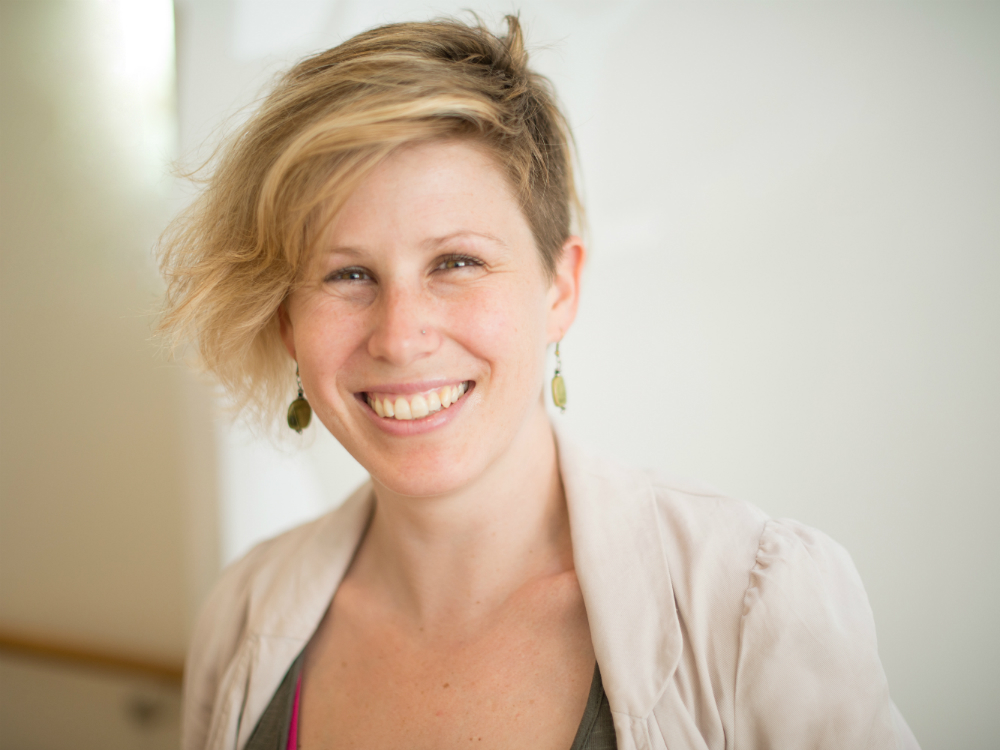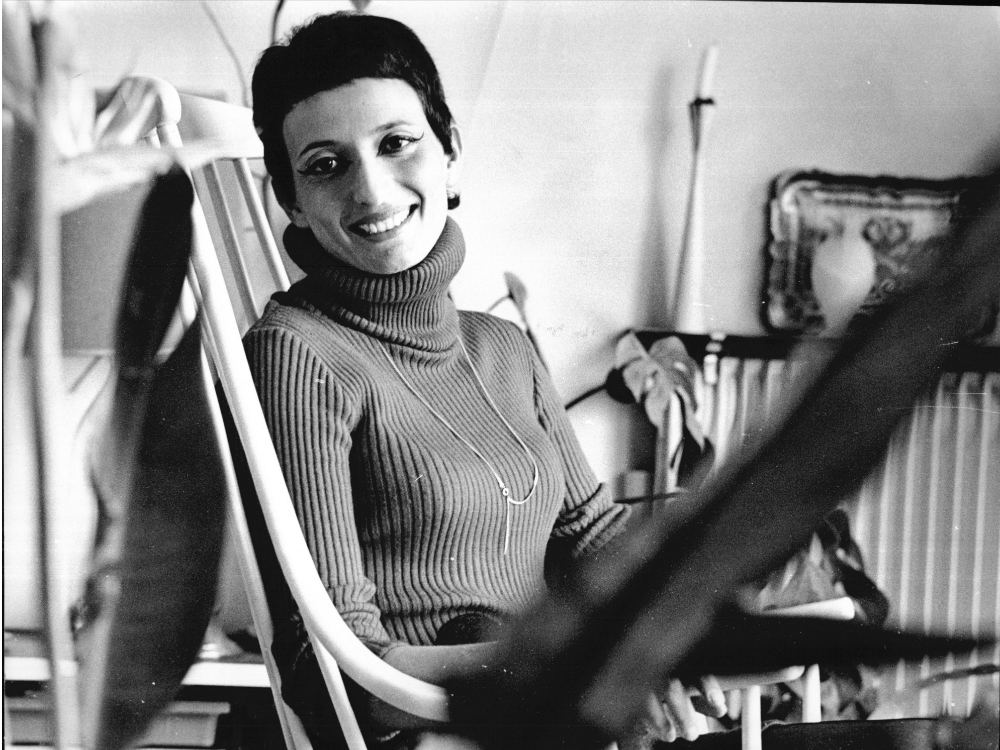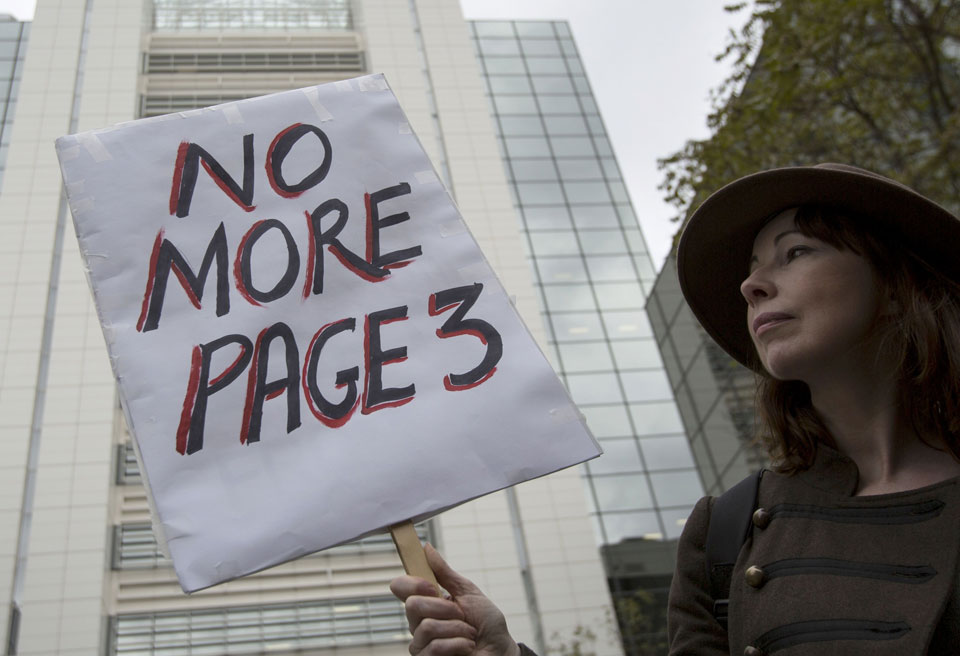Caroline Criado-Perez: Five Fearless Women Who Have Inspired Me To Be A Proud Feminist
Women's rights campaigner and author of Do It Like A Woman, Caroline Criado-Perez, on the inspirational and fearless women in her life

Celebrity news, beauty, fashion advice, and fascinating features, delivered straight to your inbox!
You are now subscribed
Your newsletter sign-up was successful
Women's rights campaigner and author of Do It Like A Woman, Caroline Criado-Perez, on the inspirational and fearless women in her life
Caroline Criado-Perez is a feminist activist, novelist and co-founder of The Women's Room, who campaigns for better women's representation in the media. Here, she shares the stories of the five women who inspired her to become a proud feminist...
I grew up not liking women very much. I mean, I loved my mother, and my closest friends were female, but they were the exceptions to the rule I never questioned: women were irrational, over-emotional, trivial creatures. What was there to like or admire in them? Women did nothing of note. They were always just the whiny drag on the hero of the story who was trying to save the world, damnit.
It may sound surprising to hear this anti-woman diatribe coming from a feminist, but when you look at the way the world is presented to us, is it really? Only 13% of global news stories focus on women, and women make up only 28% of speaking roles in Hollywood films. In the theatre, only 30% of roles are for women, and in children’s books, only 31% of central roles are female. We live in a world where the people presented as doing the important, interesting, real work, are not the people with the vaginas. No, the vaginas are the ones on the sidelines, fussing over their nails. It was Deborah Cameron who first shook me out of this way of thinking.
Deborah Cameron I remember the moment so clearly. I was 25. I was sitting in my university library (I went to uni as a mature student), reading up for an essay on gendered language, and I picked up a book called Feminism and Linguistic Theory. Not the most likely title you might think for a feminist awakening, but this book was mine. In it, Deborah wrote about the supposedly gender neutral use of the word 'man' to mean humankind, and how actually, when women hear this word they think, unsurprisingly, of a man. I say unsurprisingly, but for me, it really was a shock to realise that my mental world was populated almost exclusively by men. Because not only did I think of a man when I heard 'man', I also thought of a man when I heard 'he' used as a neutral pronoun. And, I realised, when I thought of a lawyer, I thought of a man. When I thought of a doctor, a company director, a journalist, a politician. And I couldn’t help but wonder: is this why I don’t think I can be any of those things?

Anna Camilleri So now I was a feminist — what next? I still had a year and a half of my degree to complete, so I threw myself into applying a feminist analysis to the literature I was reading. It was my tutor Anna Camilleri who guided me through these next stages of my feminist awakening. She introduced me to writers like Hélène Cixous (above) and Luce Irigaray who were so exhilaratingly radical in their challenges of a literary canon that centred the male perspective and reduced women to also-rans.
I started to reflect on writers that I knew I was supposed to cherish, like Charles Dickens, but whose writing I had always found alienating — and to wonder whether the fault was with me, or with their inability to draw female characters with more depth than a two dimensional stereotype. I started to re-evaluate female writers like Jane Austen, who wrote about the female experience and were as a result so often derisively dismissed as 'Regency chick lit' - and to wonder if the critique was of their writing, or of their sex. It was another step towards making sense of a world from which I had always felt alienated.
Celebrity news, beauty, fashion advice, and fascinating features, delivered straight to your inbox!

Lucy-Anne Holmes Then it was time for me to leave university and hit the wider world. I wanted to change things — but how? I’d been cloistered away in Oxford libraries for three years, I had no feminist network — I didn’t really even know any feminists. I’d read somewhere that twitter was where the feminists were hanging out, so I set up an account and started a blog. About a month later, I was followed by a new account called NoMorePage3. It was the first campaign I was ever involved in — and Lucy-Anne Holmes was such an inspiration as campaign leader. Endlessly enthusiastic, always laughing, she believed that she would win because she knew she was right.
I remember staring at her, slightly bemused, one winter evening on the tube back from a feminist event in the depths of south London, as she cheerily informed me that that page 3 would be “gone by Christmas”, because “it has to be”. It wasn’t gone by Christmas — in fact it took another two years of solid campaigning before Lucy’s campaign forced The Sun to back down. But her fearlessness, her resilience in the face of all the attacks she faced, her determination to keep going — and to keep going with a smile — was an absolute inspiration, and without a doubt played a huge role in giving me the courage to stand up and fight my own campaigns.
Gia Milinovich I have a thing for fearless women, and Gia Milinovich is probably my ultimate fearless role model. We first met in the aftermath of the storm of rape and death threats I received over my campaign to keep a female historical figure on our banknotes. At that time, I was still pretty much unknown — but seemingly overnight, thousands of people who I didn’t know suddenly knew me. This would be a difficult transition for anyone, but I think it is especially difficult for a woman, because we are brought up to think the most important thing is for everyone to like us. We have to be 'sugar and spice and all things nice'. But the only way to make sure everyone likes you is to never challenge anyone, never say anything contentious, never stand up for yourself. That’s not something I am prepared to do.
Gia taught me that I had to let go of being universally liked: I could never control what the world thought of me. The only thing I could control is what I said and did. And that had to be enough. Gia also introduced me to boxing, which has been one of the single most empowering things I’ve ever learnt to do: it’s made me fit, it’s made me able to run, and it’s made me able to defend myself. As a woman who has been sexually assaulted, learning to feel in control of my body like this has really been life-changing.
Ali Criado-Perez And finally, my mother, Ali Criado-Perez. Another fearless woman - although I’ve seen her at her lowest. In her fifties, she and my father divorced, and after a lifetime of following someone else’s career around the world, Mum felt adrift. I watched in horror as she seemed to dissolve into herself: desperate, unhappy, lost. But although she was floored for a while, she didn’t let this life crisis defeat her. Instead, she used it as an opportunity to start working for Médecins Sans Frontières, the medical aid charity. It was something she had always wanted to do. Women are taught that their happiness depends on having a man in their life. That our lives are over as soon as the first wrinkle appears. My Mum is the ultimate riposte to that argument.
Do It Like A Woman by Caroline Criado-Perez is out now (Portobello Books)
The leading destination for fashion, beauty, shopping and finger-on-the-pulse views on the latest issues. Marie Claire's travel content helps you delight in discovering new destinations around the globe, offering a unique – and sometimes unchartered – travel experience. From new hotel openings to the destinations tipped to take over our travel calendars, this iconic name has it covered.